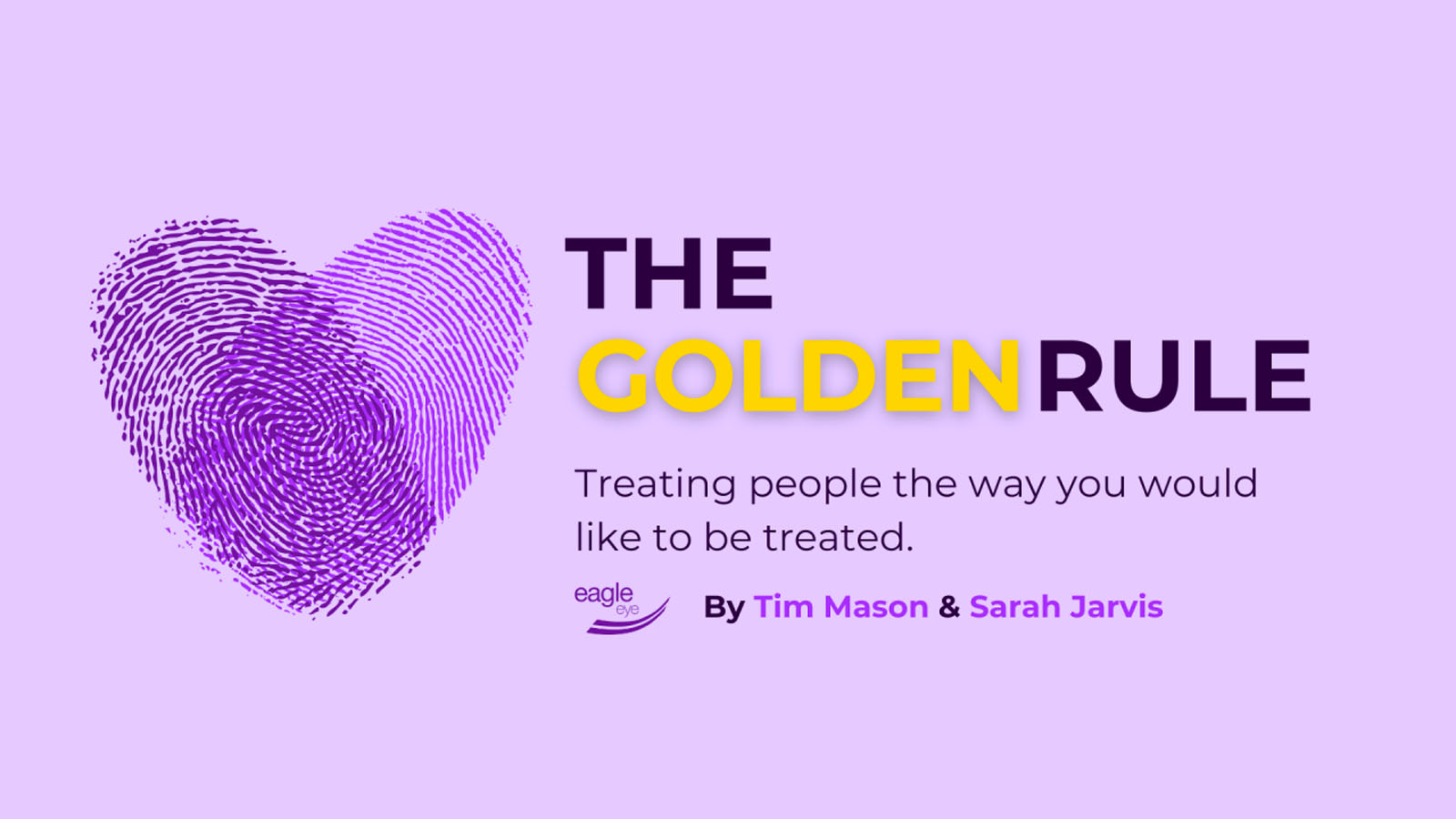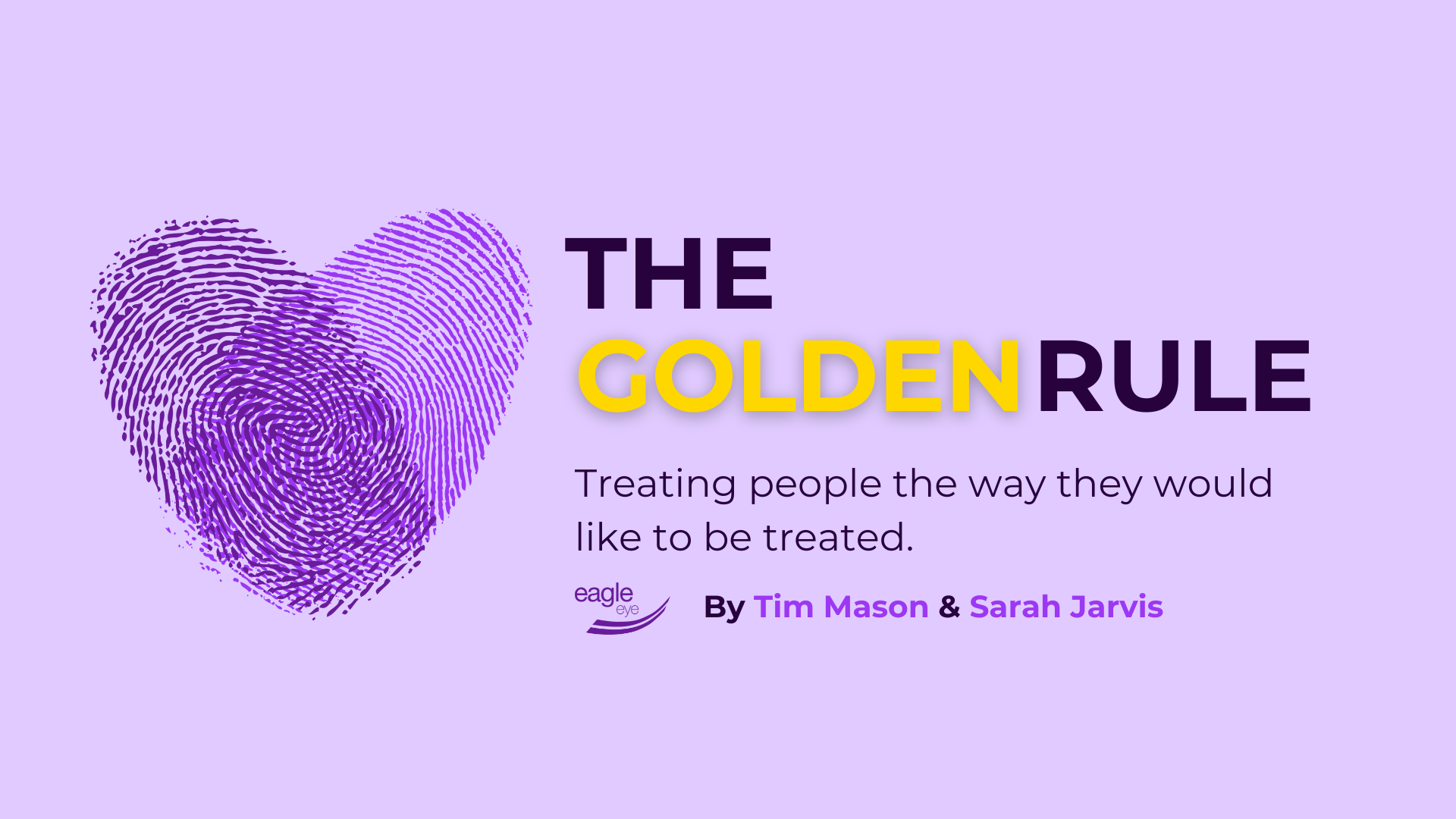5 min read
Blog #3: Following the Golden Rule to place your employees at the heart of your organization
Putting employees first drives business success. Learn how Eagle Eye applies the golden rule internally and externally.
Get the latest insights, research and news delivered straight to your inbox.
Plus, enter to win the 2nd edition of Omnichannel Retail by Tim Mason & Sarah Jarvis!
No spam. We promise. 💜
AIR Platform: Loyalty & personalization for retailers
Eagle Eye's AI-powered platform unifies loyalty management and 1-to-1 personalization. Capture first-party data, deliver personalized experiences at scale, and measure results. Trusted by leading grocery, fashion, and hospitality brands.
AI Personalization Science→
Unlock the full value of your customer data with AI you can trust, built for retailers to deliver personalization at scale
Real-Time Loyalty→
Build lasting loyalty with a proven engine trusted by leading omnichannel retailers
Omnichannel Promotions→
Drive growth where it counts with the most flexible promotions platform in retail
Learn, explore, and stay ahead
Insights, guidance, and tools to help retailers and partners get more from loyalty and personalization.
Featured content
The A-Z of Customer Loyalty→
A practical guide to building loyalty leadership in 2026 - from AI-powered personalization to real-time decisioning and ROI.
Investor relations
Find results, reports, regulatory announcements, and corporate governance information for Eagle Eye Solutions Group plc.
Featured content
2025 Annual Report→
Company performance, governance, and investor information in one place.
Built for retailers operating at scale
Powering loyalty, personalization, and promotions across complex, multi-channel retail environments.
Giant Eagle case study→
Transformed myPerks into a real-time, scalable loyalty platform, powering millions of personalized offers and faster, more flexible campaign execution.
Tesco case study→
Delivered AI-driven personalized challenges to millions of Clubcard members, increasing engagement and proving 1:1 marketing can scale.
See all our case studies→
Built to partner at scale
Working with technology, solution, and integration partners to help retailers deliver smarter loyalty and personalization.
Become a partner
Explore how we work with partners to build, integrate, and scale loyalty and personalization for retailers.
We're the personalization people.
Our technology helps retailers design and manage world-class loyalty programs that capture rich first-party data - and then applies built-for-retail AI to deliver 1:1 personalization at scale.

At the end of our last blog, we introduced John Wooden, the legendary UCLA Bruins basketball coach; a man who lived and breathed the Golden Rule. Both on and off the court, Wooden urged his teams to "make every day your masterpiece", encouraging them to focus on the here and now, always performing to the best of their ability. To me, this concept is a more aspirational version of my mother's "as long as you do your best, darling", which helped a somewhat scholastically challenged child remain reasonably cheerful and confident.
Wooden's message to his young athletes was clear: don't wait for tomorrow to give your all, because tomorrow is built on the foundation of today's efforts. This resonates far beyond the basketball court—it's a philosophy for life.
At Eagle Eye, we ask our teams to do exceptional things every day and have set the standard that we will all treat the people we interact with - fellow employees, customers, partners - the way they would like to be treated. But following the Golden Rule requires individuals to be their best selves, and so we’ve put a strategy in place to set our teams up for success.
Consider the range of human behavior, from moments of brilliance to times of struggle. We can all think of examples of people, including ourselves, at their best and their worst. The example that I tend to use is Tiger Woods, thinking about some of his best days on the golf course; "In your life have you ever seen anything like that?!" versus the grainy dash cam footage of him walking the line under suspicion of a DUI in Florida. The lesson? Our actions matter, both in our professional and personal lives.

In the workplace, we think it is broadly agreed that your manager’s behavior is the single most important contributor to job satisfaction. A manager who flits between being open, nurturing, and generous with advice to one who is short-tempered, sarcastic, and offhand will have a huge impact on how an employee feels, performs, and how long they stick around.
Recognizing this more than 20 years ago, I worked with my colleagues to develop a programme which was designed to teach managers how to follow the Golden Rule when it came to their employees. It was a huge success, and so when I joined Eagle Eye, one of the first things I did was to implement something similar, something we call Life Skills. Initially, it was offered just to our management team, but has subsequently been rolled out as universal training for every existing and new employee because those managers told us how much it helped them not only at work but in their personal lives.
Much of our Life Skills programme is rooted in Cognitive Behavioural Therapy, something which, in my view, should become part of the general curriculum. I don’t have any influence on that, but at least I can share our thinking here. So here goes…
On the days when we’re finding it difficult to make our masterpiece, we talk about being in "The Box". "The Box" (also known as 'the Valley of Despair') is part of the Emotional Cycle of Change, a helpful model (from the 1970s) which illustrates how people react in the face of unexpected events. We live in a VUCA (volatile, uncertain, complex, and ambiguous) world, so we know to expect the unexpected and our Life Skills programme provides everyone at Eagle Eye with a toolkit to help us get back on track to making our masterpieces.

Change, however big or small, triggers reactions in all of us. The aim of Life Skills is to equip our teams with the ability to recognize what triggers us to enter "The Box" in order that we can better control our reactions.

Control can, in some instances, mean just taking a deep breath or two. You’ll be amazed how this conscious pause can re-centre you because, as the famous yogi B.K.S. Iyengar said, "the mind is the king of the senses, and the breath is the king of the mind".
From this calmer state, we suggest you then go on to ask yourself three questions,
Remember, you are not a victim of circumstance—you are the architect of your destiny. As the Serenity prayer reminds us, embrace the courage to change what you can and the wisdom to accept what you cannot. We hope that some of the things in here work for you and enable you to be your best self more often. This will enable you to treat others the way you'd like to be treated.
Please continue to participate in the #GoldenRule revolution. Leave your comments and share examples of where you’ve experienced the Golden Rule and masterpiece makers in action. Let's celebrate those who are embracing these principles and making the world a better place, one act of kindness at a time.
Get the latest insights, research, and news delivered straight to your inbox.
Plus, enter to win the 2nd edition of Omnichannel Retail by Tim Mason & Sarah Jarvis!
No spam. We promise. 💜

5 min read
Putting employees first drives business success. Learn how Eagle Eye applies the golden rule internally and externally.

5 min read
Putting people first isn't just kind - it's strategic. Learn how the golden rule unlocks loyalty and growth for retailers.

4 min read
Discover how the principles of 'Unreasonable Hospitality' can drive business success by fostering customer and employee loyalty through exceptional service